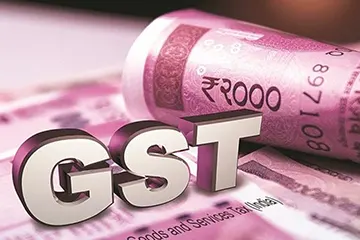 Following a Council meeting that took place on October 7, India’s Revenue Secretary Sanjay Malhotra clarified that the new 28% goods and services tax (GST) will not be retrospective.
Following a Council meeting that took place on October 7, India’s Revenue Secretary Sanjay Malhotra clarified that the new 28% goods and services tax (GST) will not be retrospective.
This summer, India’s government decided to impose a 28% GST on full-value bets that will affect all types of online gaming operations, regardless of whether the games involved are skill-based or games of chance. This includes remote gaming, casino games, and horse race betting, which will join forms of gambling that were already subject to the said taxation rate.
The changes to the Central GST Act came into effect on October 1, and thus far, amendments to local GST legislation have been made across more than half of the country’s states and union territories. Offshore gaming operators that target an Indian audience will also be affected by the new taxation, and they will be required to register in India and declare PAN. Failure to do so will result in the operators in question being blocked from accepting users who reside in India.
The 28% Tax Rate Has Been Met With Criticism
In July, Senior Vice President, Business Strategy of Head Digital Works Siddharth Sharma expressed concerns that the legislation would affect the industry negatively and hamper innovation. He also said that Indian gaming businesses were worried that the amendments would lead to users turning to unlicensed gambling operators as a result of the tax increase.
The same month saw the announcement that the Indian Esports industry would be exempt from the new 28% GST as its tax rate would instead remain at 18%. Despite this and the criticisms surrounding the increased taxes tied to gambling, it was made clear in October that the Council would go forward with the new levy when it comes to the iGaming industry.
Concerns were also raised about the new tax being applied retrospectively, with states such as Delhi and Goa citing tax demands that had been sent to online operators as being particularly problematic. Officials did address this issue after the October 7 meeting, and critics were assured that retrospective taxation would not be undertaken. Sanjay Malhotra further clarified that the tax notices that were brought to the government’s attention were not retrospective. Instead, the companies had already been subject to a GST of 28% due to their operations involving betting and gambling.
Finance Minister of Delhi, Atishi, pointed out that remote gaming companies were sent tax demand notices for the past 6 years, which involved a 28% tax rate. The notices in question amounted to ₹1.5 lakh crore ($18 million). She continued, stating that this figure and the taxation rate in general would “kill the industry” and harm Indian startups. Mauvin Godinho, Transport Minister of Goa, said that companies whose net worth was lower than the tax they would be required to pay would simply be unable to meet the tax demand. According to him, the majority of India’s states have labeled this “an anomaly” that warrants correction.